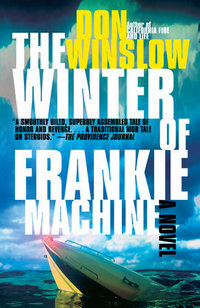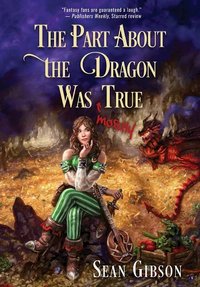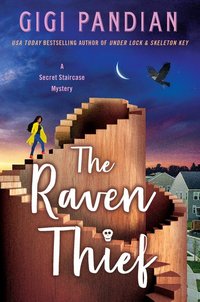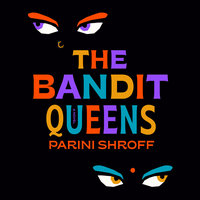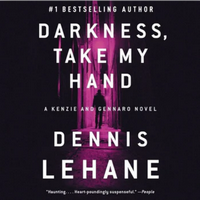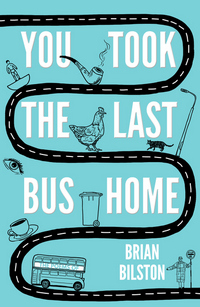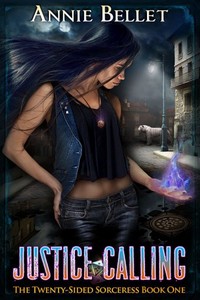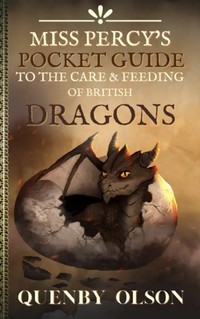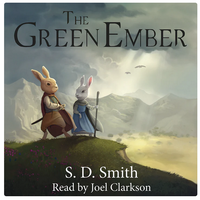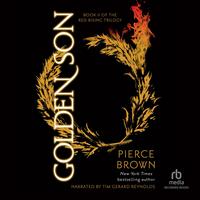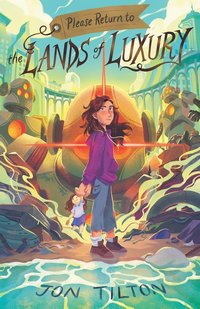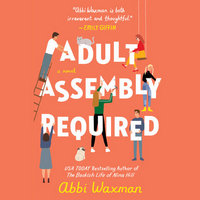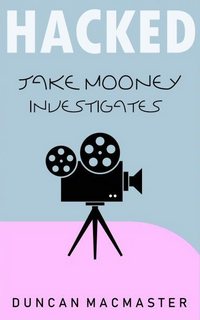 There are more audiobooks than print books in this month’s selections. That has more to do with me reading more ARCs than usual, and I don’t have access to final versions of those to quote from. Or the book being so good that I just don’t know what to quote from (thanks, Ozark Dogs). As always, when it comes to audiobooks, I’m guessing the best I can at the punctuation, etc.
There are more audiobooks than print books in this month’s selections. That has more to do with me reading more ARCs than usual, and I don’t have access to final versions of those to quote from. Or the book being so good that I just don’t know what to quote from (thanks, Ozark Dogs). As always, when it comes to audiobooks, I’m guessing the best I can at the punctuation, etc.
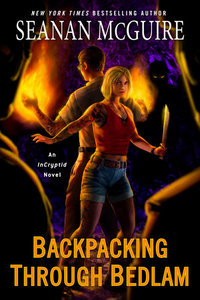
Backpacking Through Bedlam by Seanan McGuire
Family is complicated. Peach cobbler, on the other hand, is refreshingly simple.
“The laws of physics aren’t negotiable.”
Darius laughed, and the sound was loud and joyous as he set his hands back on the wheel. “Sure they are. There’s no law that’s not negotiable, if you know how to get your shoulder against it and push.”
Always be polite to she shapeshifting super predator. It’s a simple rule of life, but a good one all the same.
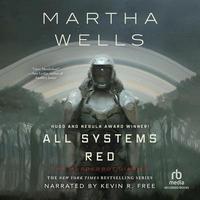
All Systems Red by Martha Wells
I liked the imaginary people on the entertainment feed way more than I liked real ones, but you can’t have one without the other.
You may have noticed that when I do manage to care, I’m a pessimist.

The Book That No One Wanted to Read by Richard Ayoade
Might I suggest getting on good terms with the capybara? This is just about the friendliest mammal you could meet. Native to Central and South America, they eat grass, weigh up to 150 pounds, and look like someone pushed a kangaroo’s head through a squirrel’s tail. They have dry skin and swim to a high standard.
Us books need to be seen. We need to be held. We need to be heard. I think that’s why children make the best readers, because they know that these things are also true of them.
Problems with invisibility include people bumping into you, and not coming out well in photos.
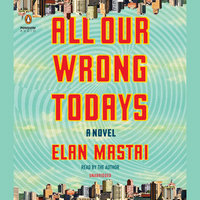
All Our Wrong Todays by Elan Mastai
People talk about grief as emptiness, but it’s not empty. It’s full. Heavy. Not an absence to fill. A weight to pull. Your skin caught on hooks chained to rough boulders made of all the futures you thought you’d have.
The problem with knowing people too well is that their words stop meaning anything and their silences start meaning everything.
That’s all science is. A collection of the best answers we have right now. It’s always open to revision. Yesterday’s fact is today’s question and tomorrow has an answer we don’t know yet.
So he did what you do when you’re heartbroken and have a time machine—something stupid.
…time travel is very bad at fixing mistakes. What it’s very good at is creating even worse mistakes.
That’s what love can do for you if you let it: build a person out of all your broken pieces. It doesn’t matter if the stitches show. The stitches, the scars just prove you earned it.
This is how you discover who someone is. Not the success. Not the result. The struggle. The part between the beginning and the ending that is the truth of life.
Is there a word for a thing you know you absolutely shouldn’t do, that would be wrong in every way that matters to you, but that you’re pretty sure you’re going to do anyway? Or is that just—human?

The Widower’s Two-Step by Rick Riordan
His eyebrows went up. His mouth softened. His eyes cast farther afield for something to latch on to. Nostalgia mode. I had maybe five minutes when he might be open to questions.
Not that drunks have predictable emotional cycles, but they do follow a brand of chaos theory that makes sense once you’ve been around enough of them, or been made an alumni yourself.
You could hear the stereo from the downstairs neighbors just fine. They were playing Metallica. Playing isn’t really the right verb for Metallica, I guess. Grinding, maybe. Extruding.
We zipped along with the front trunk rattling and the left rear wheel wobbling on its bad disc. I patted the VW’s dashboard.
“Not this trip. Break down on the way home, please.”
Of course I told the VW that every trip. VWs are gullible that way.
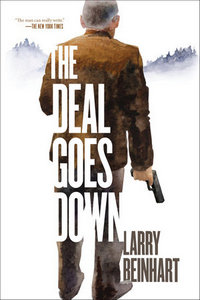
The Deal Goes Down by Larry Beinhart
Trees fight for life. If you climb to the high, rocky places, where the soil’s been stripped by the beating of the winds, day and night, you’ll see the pines hanging on, their roots crawling into the splits between the stones and wrapping tight around them, like the crew of a ghost sailing ship, desperately clinging forever to the lines as they ride through an eternal storm.
This love of life that we go on about, how precious it is and such, is just a mechanism. Spiders and flies, blades of grass, and bacteria have it. Any form of life that doesn’t have it gets wiped out. Ipso facto, it’s built in, like spark plugs in an internal combustion engine. We spend endless hours wondering if our life will be short or long, good or bad, worthwhile or worthless, then death comes, and we have no idea at all.
It was a 9mm. I didn’t know the brand. I knew it could kill me. The name of the manufacturer didn’t make much difference. They were all sufficiently reliable that I wouldn’t bet my life on a malfunction. Whichever one of them this was, it would kill me as dead as any of the others. For that matter, the fact that it was an automatic rather than a revolver and that it was a 9mm rather than a .38, a .44, or a 45 was irrelevant in the immediate context.
I felt I had to say something, some explanation of the distance that remained. That we—that I—retained. “Young men run on passion. Old men are filled with broken shards of memories. As if we’ve been looking at our lives in mirrors, all along, through all those years, lots of them forgotten, some lost, most of them broken, nothing really true or completely whole is left, just all those bits and pieces, sharp edges, and silver peeling off the backs. That’s all there is.”
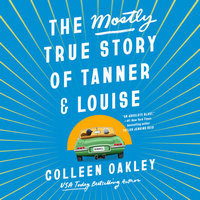
The Mostly True Story of Tanner & Louise by Colleen Oakley
“Why is it called a grandfather clock and not a grandmother clock?” her eldest granddaughter, Poppy, asked once. “Because only a man would find the need to announce it every time he performed his job as required,” Louise replied.
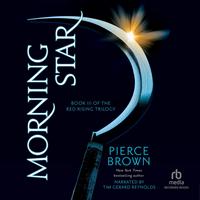
Morning Star by Pierce Brown
Much as I enjoy using four hundred million credits’ worth of technology make me into a flying human tank, sometimes warm pants are more valuable.
“You tell anyone I cried, I’ll find a dead fish, put it in a sock, hide it in your room, and let it putrefy.”
In war, men lose what makes them great. Their creativity. Their wisdom. Their joy. All that’s left is their utility. War is not monstrous for making corpses of men so much as it is for making machines of them. And woe to those who have no use in war except to feed the machines.
Justice isn’t about fixing the past, it’s about fixing the future. We’re not fighting for the dead. We’re fighting for the living. And for those who aren’t yet born.
“I always think about how life would have been if Eo never died. The children I would have had. What I would have named them.” I smile distantly.
“I would have grown old. Watched Eo grow old. And I would have loved her more with each new scar, with each new year even as she learned to despise our small life. I would have said farewell to my mother, maybe my brother, sister. And if I was lucky, one day when Eo’s hair turned gray, before it began to fall out and she began to cough, I would hear the shift of rocks over my head on the drill and that would be it. She would have sent me to the incinerators and sprinkled my ashes, then our children would have done the same. And the clans would say we were happy and good and raised bloodydamn fine children. And when those children died, our memory would fade, and when their children died, it would be swept away like the dust we become, down and away to the long tunnels. It would have been a small life,” I say with a shrug, “but I would have liked it.”

(Image by DaModernDaVinci from Pixabay)
 This is a weekly bloghop hosted by Freda’s Voice.
This is a weekly bloghop hosted by Freda’s Voice. Grab a book, any book.
Grab a book, any book. Turn to Page 56 or 56% on your ereader. If you have to improvise, that is okay.
Turn to Page 56 or 56% on your ereader. If you have to improvise, that is okay. Find a snippet, short and sweet.
Find a snippet, short and sweet. Post it.
Post it.
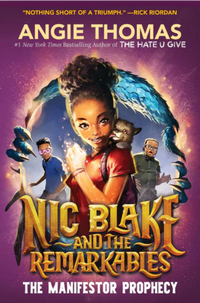
![]()


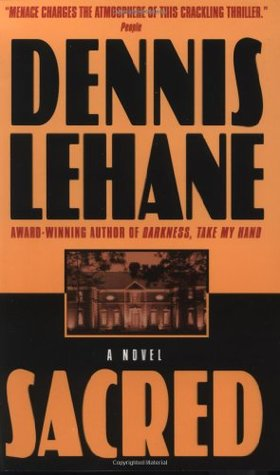
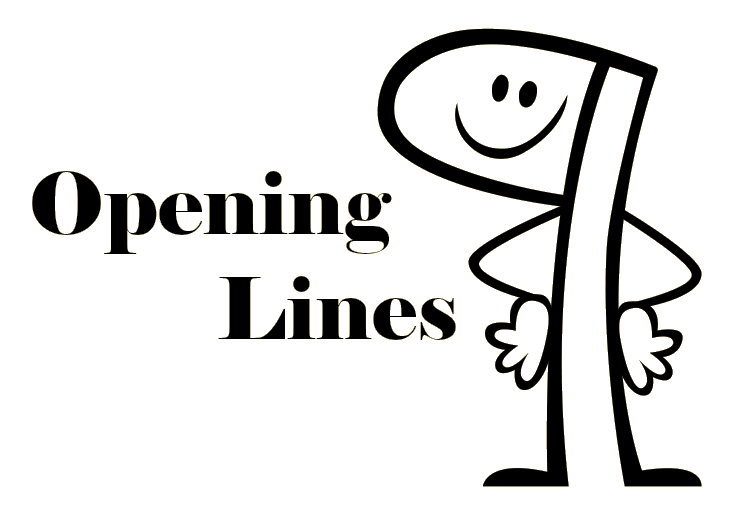
 There are more audiobooks than print books in this month’s selections. That has more to do with me reading more ARCs than usual, and I don’t have access to final versions of those to quote from. Or the book being so good that I just don’t know what to quote from (thanks, Ozark Dogs). As always, when it comes to audiobooks, I’m guessing the best I can at the punctuation, etc.
There are more audiobooks than print books in this month’s selections. That has more to do with me reading more ARCs than usual, and I don’t have access to final versions of those to quote from. Or the book being so good that I just don’t know what to quote from (thanks, Ozark Dogs). As always, when it comes to audiobooks, I’m guessing the best I can at the punctuation, etc.







